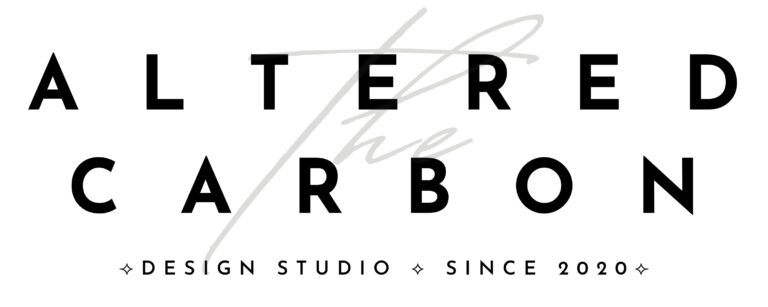Picture this: you’ve just finished school, and the question everyone’s asking is, “What’s next?” For many, the answer lies in the Bachelor of Science degree. But what’s the big deal about this program? The full form of BSC, Bachelor of Science, might sound simple, but the opportunities it offers are anything but. This degree can take you from analyzing DNA in a lab to programming the next breakthrough in AI. It’s a starting point that opens countless doors, each leading to a fascinating career.
So, what makes the Bachelor of Science such a sought-after choice? For starters, it offers flexibility. Unlike some career paths that pigeonhole you into a single trajectory, a BSC lets you explore diverse interests while still building a solid foundation in science. Take this example: You might start with a love for chemistry but later discover a passion for environmental studies. The structure of a BSC degree often allows you to pivot and adapt. That’s the magic of this program—it doesn’t box you in. Instead, it equips you with a toolkit to solve real-world problems.
Let’s talk about options. The full form of BSC might be Bachelor of Science, but it could easily stand for “Boundless Study Choices.” From computer science and biotechnology to physics and astronomy, the variety is endless. Say you’re interested in technology. A BSC in Computer Science will immerse you in coding, algorithms, and data systems. On the other hand, if you’re curious about life itself, a BSC in Biology offers a deep dive into genetics, ecology, and the intricacies of the natural world. This diversity ensures that there’s a perfect fit for every student.
And here’s the fun part: it’s not just about books. A Bachelor of Science program doesn’t believe in learning through textbooks alone. Imagine conducting chemical experiments in a lab or creating a prototype for a sustainable energy project. Hands-on learning is at the heart of most BSC courses. Why? Because science isn’t something you memorize—it’s something you do. You explore, experiment, and innovate. This practical approach is why employers value BSC graduates so highly. They know these students don’t just have knowledge; they know how to apply it.
Let’s not forget another key aspect—problem-solving. Life is messy. Challenges pop up when you least expect them. And guess what? Science teaches you to embrace uncertainty. For instance, a physics student tackling complex equations isn’t just learning math—they’re learning patience, logical thinking, and the ability to break down big problems into smaller steps. These are life skills. And they stick with you whether you end up working in a lab, running a business, or leading a team.
You might wonder, “But isn’t this just for future scientists?” Nope. That’s a myth. A Bachelor of Science isn’t only about microscopes and formulas. It’s a gateway to careers you might not expect. Want to enter finance? A degree in mathematics could make you a sought-after analyst. Interested in saving the planet? Environmental science has you covered. The possibilities are vast, and the only limit is your curiosity.
The best part? You don’t have to stop with a BSC. It’s just the beginning. Many students use their Bachelor of Science degree as a springboard for further studies. Whether it’s a Master of Science, an MBA, or even a professional course in data science or medicine, a BSC provides the foundation. It’s like building a sturdy base before constructing a skyscraper.
But what’s life like during a BSC program? Well, it’s a mix of challenges and rewards. One day, you might be working on a group project. The next, you’re writing a research paper or presenting findings. It’s intense but fulfilling. You learn to manage time, collaborate, and communicate effectively—skills that are vital no matter where life takes you.
And yes, let’s talk about opportunities. Employers across industries value BSC graduates. Why? Because they bring something unique to the table. They’re analytical, detail-oriented, and innovative. Whether you’re working in tech, healthcare, education, or even startups, a Bachelor of Science gives you a competitive edge. It’s a degree that tells employers, “This person knows how to think critically and solve problems.”
Still not convinced? Here’s an analogy. Think of a Bachelor of Science degree as a passport. The full form of BSC might not change, but the destinations you can reach with it are limitless. Want to travel the world of research? Done. Hop into the tech industry? Absolutely. Navigate uncharted waters in emerging fields like data science or renewable energy? You’ve got the map.
If you’re someone who’s curious, ambitious, and ready to tackle challenges head-on, a BSC is the right fit. It’s not just about acquiring knowledge. It’s about building a mindset—a way of looking at the world with a sense of wonder and a drive to make it better.
So, when you hear people say, “I’m doing a BSC,” know that it’s more than just a degree. It’s a journey. It’s a chance to explore the unknown, find your passion, and create a meaningful career. Whether you end up decoding genes, designing software, or teaching the next generation, the Bachelor of Science sets the stage. And the stage? It’s as vast as the universe itself.
FAQ: The Bachelor of Science
Q1: What is the full form of BSC?
A: The full form of BSC is Bachelor of Science. It’s an undergraduate degree focusing on science, technology, and related fields.
Q2: How long does it take to complete a BSC degree?
A: Typically, a BSC degree takes 3 to 4 years, depending on the country and the university.
Q3: What are some popular specializations in a Bachelor of Science program?
A: Popular specializations include Computer Science, Biology, Physics, Chemistry, Environmental Science, and Mathematics.
Q4: Is a BSC only for students interested in research?
A: Not at all! While research is an option, BSC graduates can pursue careers in IT, healthcare, finance, education, and many other fields.
Q5: Can I study further after completing my BSC?
A: Absolutely! Many students pursue postgraduate degrees like Master of Science (MSC), MBA, or even professional courses in fields like medicine or data science.
Q6: What skills does a BSC degree develop?
A: A BSC hones critical thinking, analytical skills, problem-solving, and practical knowledge—skills that are valuable in any career.
Q7: Is a BSC degree recognized internationally?
A: Yes, a Bachelor of Science is globally recognized, opening opportunities for higher studies or jobs abroad.
With a BSC degree, the future truly holds endless opportunities. Are you ready to take the plunge?
















